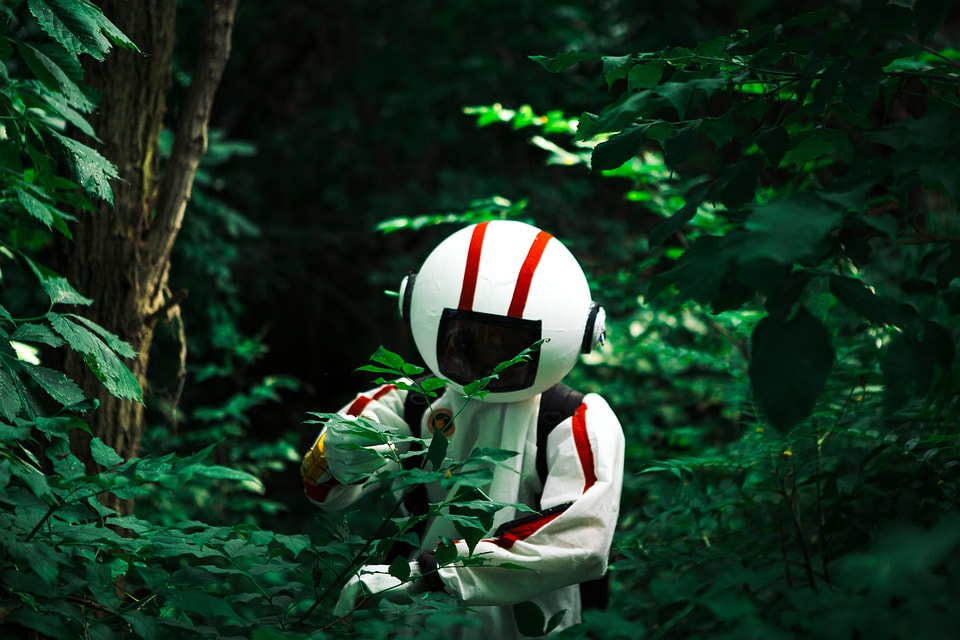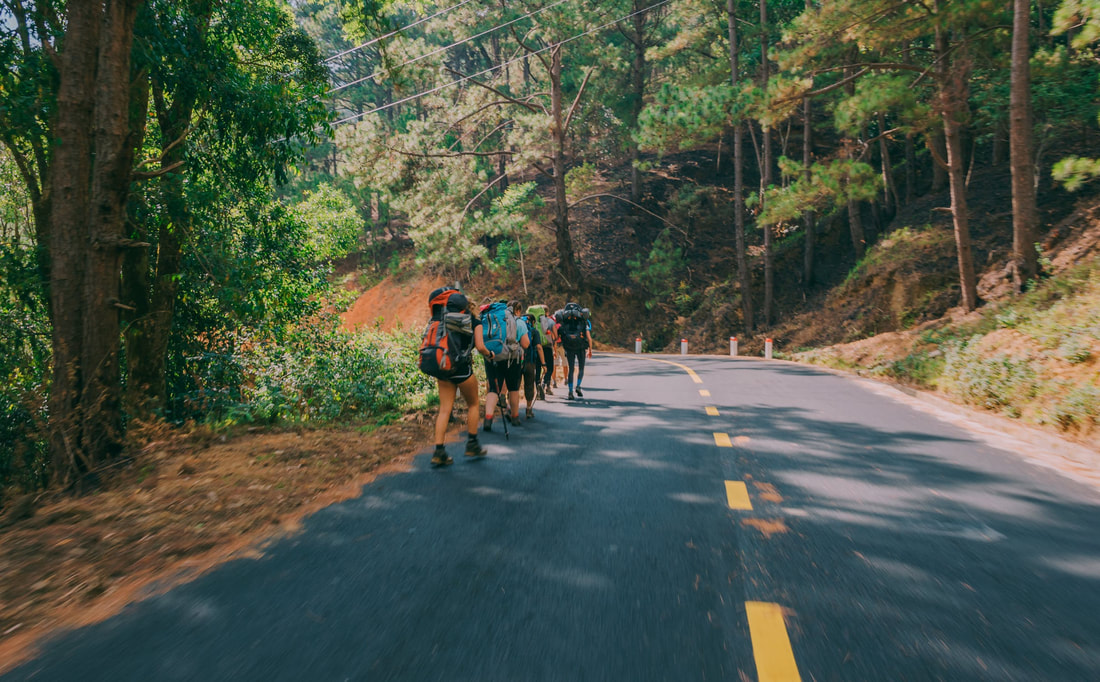|
I recently read an ABC news article about a secret report which disclosed the fact that universities were accepting people into teaching degrees with ATAR (a university entry ranking out of 100) so low that some were even close to zero! This is a phenomenal effort in laziness.
To get a good idea about what I’m talking, here a link to the article: Students with lowest ATAR scores being offered places in teaching degrees: secret report Students who leave high school with the lowest scores — some close to zero — are being offered places in teaching degrees at universities, a secret report finds. Read the full story This is mind numbingly stupid and irresponsible. The report highlights that 50% of teaching degree entrants were in the bottom 50% of academic achievement. No wonder the Unis didn’t want this info released. If someone were so lazy and hopeless at school, what possible reason would you let them back into school? I’m already strongly against teachers going from school to uni to school, but this really takes the cake. Whilst many teachers who go from school to uni to school are ineffective and will struggle to handle the increasingly rapid transformation of education, at least they had to achieve some reasonable level of success in school to gain entry into uni. However, those who can’t meet even the most basic academic standards, should not be rewarded by entry into uni courses which should be demanding far greater ability and performance and command higher salaries. There’s a great movie called ‘Idiocracy,’ which shows a future that is filled with terrible social and economic problems because people have become progressively dumber. Unfortunately, this is the potentially sad reality of our future, if we let idiots in as teachers. I’ve worked with enough hopeless wasters of space who had to meet some mediocre level of achievement to get into education, I would be loath to work with anyone who couldn’t even meet this basic standard. ‘That’s a bit rude!’ I hear your cry. Well, it’s not actually, because this is about providing quality education and opportunities for students, not sheltered workshops for the lazy and unemployable. I should however, point out here as well that it’s not the lack of academic achievement that’s the issue, because I’m strongly in favour of experiential learning which is not always academically based. It’s more the fact that to obtain such a low result would mean an extraordinary level of laziness and lazy teachers tend to be uninspiring and like a rampant virus infect those whom they should be teaching, with the same level of inactivity. Teachers need to be talented, motivated and dynamic and as such, we can’t afford to be choosing the lowest common denominator. I would imagine universities are purely looking at this from a numbers point of view to fill courses. What a sad and pathetic way of going about it! Teacher degrees should push potential teachers outside their comfort zones, challenge them and build them to be dynamic and prepared for the uncertainty of a digital future. The ability to Snapchat or post something on social media, which is most likely in line with the skill-set some of those lazy performers, just doesn’t cut it. Rather than lowering the bar to the point that the next generation will be dumber as a result, why not up the standards, up the pay and show the rest of the world how much we value quality education and quality teachers in Australia.
0 Comments
Schools love to market themselves these days as being not only a place to gain an academic education, but also a place in which they can get every other bit of education possible.
From breakfast club to late afternoon care, you could off load your child somewhere for at least twelve hours a day!! But wait there’s more! You could then fill that twelve hours with so much stuff that your child is always exhausted from the relentless schedule of non-stop ‘compulsory fun’ activities that can even extend into the weekend! This will give you the time away from your children, so you don’t have to listen to them endlessly talk about making the world a better place and also a great chance to get to the gym or that great bar you used to frequent before ‘they’ came along. This might be a bit over the top, but there really is an increasing danger that more and more schools are enabling in their parent and student body and that’s too much involvement at school through way too many offerings and the over scheduling of children’s lives. Don’t get me wrong! I love co-curricular programs and I learnt more about life and the world from them than I ever did in the classroom. I think that a good co-curricular program is, in fact, vitally important to provide real experiential education opportunities to build relationships, work together, show leadership and give back to the community. The problem is that we have increasingly seen the value in activities other than the regular classroom, but instead of building them into a school curriculum and the standard school day, we’re stuffing them on top as ‘added extras.’ However, the ‘added extras’ approach doesn’t give anytime for kids to be kids. In the pursuit of value adding, we’re risking becoming detrimental to the health and welfare of students by expecting too much of them all the time. I’ve seen this over the years in outdoor education. As soon as you take a group away, where days have been so over scheduled they haven’t had the time to think, when you give them the time to think, they struggle with it. Rather than cut back on these programs at school, we instead need a curriculum which enables them to be part of the regular day. This way, we can continue to provide the great value of experiential education, but also give our students the time to reflect upon and learn from these experiences. Thus students can get more value out of less time spent on something and as a result, can find themselves growing faster than ever before. I was reading a book recently called ‘Robot Proof’ by Joseph Aoun which explores the way in which automation and AIs are reshaping the world as we know it and creating a new dynamic in which any sort of repeatable job will ultimately be taken over by robots. Why shouldn’t it? What’s the point of doing something over and over again in an extraordinarily inefficient way? This is not progress. This is just time wasting. Surely humans are better equipped and more suited to more complex things than this!
I strongly believe that society is yet to come to terms with this phenomenal transformation of the workplace. Despite people being aware and understanding that jobs have been replaced by computers or automated processes, this trend is only getting faster and more wide-spread and whilst many new jobs were created in the 80s, 90s and 2000s, the number of new jobs being created is diminishing versus the number that were previously being created. Therefore, how do we protect ourselves and the next generation from the robots? No, I’m not talking about fighting Skynet, in an apocalyptic battle for survival. I’m talking about the real threat of mass automation and the implementation of artificial intelligences that will be able to replace large numbers of both manual and professional jobs. The answer, of course, is experiential education. Whilst all the theories and knowledge in the world can be digitised and regurgitated, this doesn’t have the same impact that a real world experience has. There’s a defining factor in humans and the world which AIs and robots are not good with and that’s randomness. Whilst a computer may be able to generate random numbers, it can’t understand emotion and the randomness of human thought and action. You only need to look at recent events in politics to see how extraordinarily stupid people can be. Decisions made on the run, irrational national emergencies and a whole host of decisions made on emotion and without any of the constraints that a computer using logic may have to deal with. Whilst this is not always good, it’s human and this total randomness that is a feature of human behaviour is one defining trait. If people are experienced in dealing with this, it can protect them from the threat of being replaced by a machine. Consequently, the more we’re exposed to the randomness of life and the uncertainty of what could happen next, the more we will be prepared for any situation. Therefore, experiential education opens the world to real experiences and forces everyone to face the randomness of life. Some of the most interesting trips I’ve ever been on have come from having to actively manage random events, emotions and changing conditions. If you were for example to have a virtual reality excursion (which technology will increasingly enable), you would have the immersive, yet sanitised experience that is dictated by computer programming and logic, rather than the complete randomness of the natural world. On expeditions, encounters with wildlife, with other groups, with storms, with discomfort, with teachable moments, these could never be produced by an AI, all because of the randomness of the world around us. It’s important that we continue to prepare students for uncertainty and the best way to do it is to get out into the real world and live the experience. No matter what the work place is, no matter what the experience is, no matter what the challenge is, we will always need to be prepared for the random nature of life. Those who can react and adapt, will be successful. Those who can’t cope with this, will not. The more the world digitises, and logic systems are put in place to run repeatable processes, the more important it is for educators to engage their students with real life experiences and allow them to face the randomness of the world and build a skill set so they can adapt and thrive in this new world that comes a step closer every single day. Long gone are the days of going on camp for the sake of going on camp. Education is changing, and outdoor education is playing an increasingly important role in that change, helping to develop a vitally important skill-set of problem solving, critical thinking and teamwork, which is needed in a rapidly changing world.
Having worked on many different outdoor education programs, we’ve always needed to ensure we were setting the right level of challenge and hitting the right social and emotional developmental goals for our students. If we make things too soft and it’s just ‘a walk in the park,’ it results in complaints. If we make things too hard, and it’s like trekking to Mordor, it results in tears and complaints. Therefore, how do you find that happy medium? Essentially, finding that balance is through understanding the needs of your students and clearly setting out what you want them to achieve from the experience. Are you developing teamwork? Are you developing resilience? Are you developing relationships? Are you developing personal responsibility? Are you developing leadership? An answer to each of these questions will help shape your approach to ensure your students are getting the most out of their outdoor experiences. What you want is an authentic approach to address your students’ needs and not just a camp for the sake of it. To make your outdoor education programs as authentic as possible, it’s extremely important to understand the cultural and social context of your school. What are the biggest challenges your students are facing at school and at home? How does the culture of your school influence planning? What are the right teachable moments needed for your students? How much have they been pushed outside their comfort zone in the past? How much further can they be pushed in the future? There truly is no ‘one size fits all’ approach to this and understanding the skill-set and level of maturity of your students, is critical in designing the right type of program. For example, one school I worked for, their Year 9 program was massively challenging with 5 days of a relentless expedition which saw students moving from sunrise to sunset every day. It pushed the limits in every way and was about personal challenge, teamwork and strength through adversity. However, they’d been building up to this from year 3 with a graduated, sequential program that pushed the limits a bit further every successive year. Conversely, another group of year 9s I worked with, who had no other real outdoor education experience simply needed to be able to work together on a very basic level. Therefore, canoeing 20km in a day, followed by 19km of hiking the next day was out of the question. Instead, problem-solving and initiative games followed by a short canoe trip and a mountain bike ride was the most beneficial approach, because this was all new to them. It was a bit challenging, and far enough outside their comfort zone to create some teachable moments on which to reflect, but not enough that it was going to end in tears. Some of the most powerful and memorable learning experiences come from outdoor education. However, as with every other aspect of education, this can be significantly improved through careful and authentic design to support and build upon any specific areas of need for your students. The more outdoor education is targeted at the specific social and emotional needs of your school and your students, the more effective it will be in producing great results for your students. Be it problem solving, teamwork, resilience, leadership or simply understanding the needs of others, focussing on these outcomes can have a profound effect on everyone that goes out on one of your school programs. |
Categories
All
Archives
April 2021
|




 RSS Feed
RSS Feed